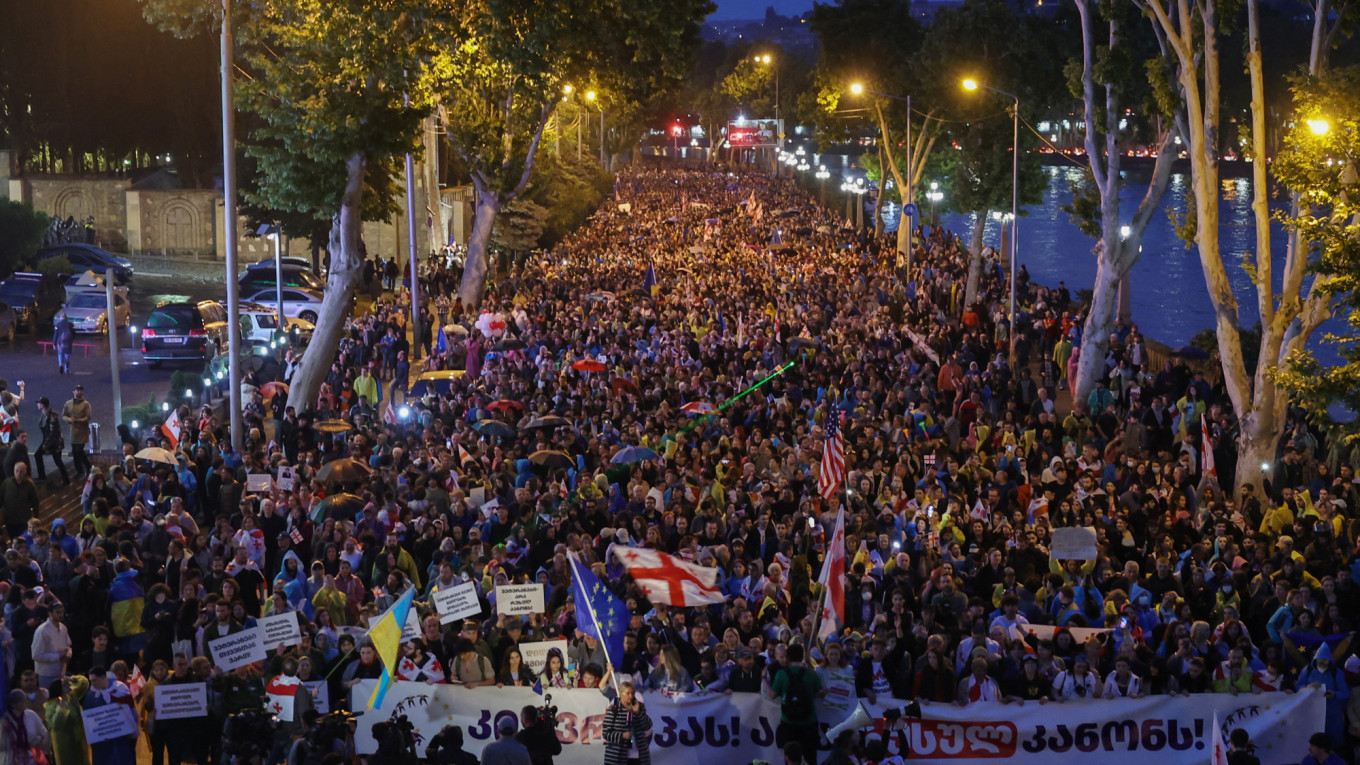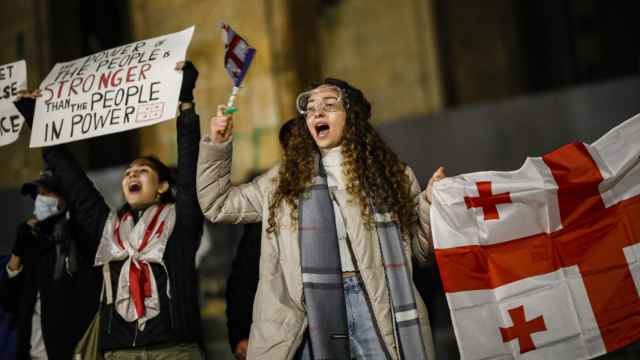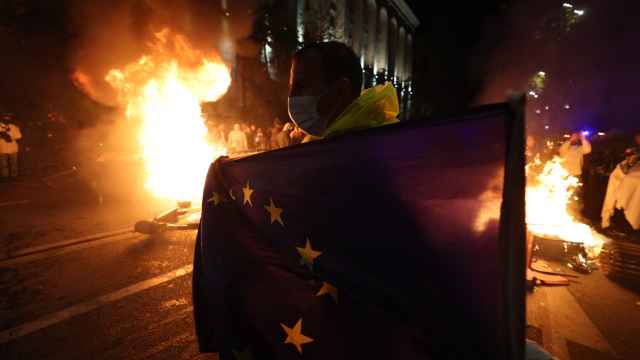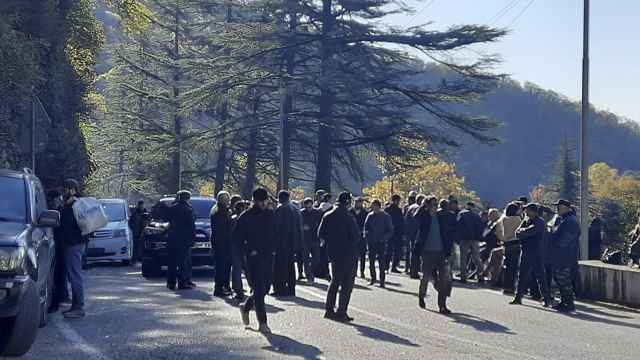Thousands of protesters marched through central Tbilisi on Saturday at a rally against a controversial "foreign influence" bill backed by the Georgian government and likened to Russian laws silencing dissent.
Massive rallies have gripped the Black Sea Caucasus country for almost a month after the ruling Georgian Dream party revived the bill dropped last year because of a huge backlash.
Demonstrators converged on Tbilisi's central Europe Square on Saturday evening in the latest protest, an AFP journalist saw.
Under pouring rain, protesters chanted "No to the Russian law!" and "No to the Russian dictatorship!", waving red-and-white Georgian flags and blue EU flags in a sea of umbrellas on the large square.
"We are protecting our European future and our freedom," said one of the protesters, Mariam Meunrgia, 39, who works for a German company, adding she fears the country is going in the direction of Russia.
"We don't need to return to the Soviet Union," said 38-year-old Georgian-language teacher Lela Tsiklauri.
The European Union, the United States and the United Nations have spoken out against the legislation, with the UN human rights chief Volker Turk also voicing concern about police violence against protesters.
Georgian police violently broke up a demonstration on April 30, firing tear gas, water cannon and rubber bullets, and beating and arresting scores of people.
The bill passed its second reading in parliament this month, ahead of parliamentary elections in October, seen as a key test of democracy in the EU-aspiring former Soviet republic.
If adopted, the law would require that any independent NGO and media organization receiving more than 20% of its funding from abroad register as an "organization pursuing the interests of a foreign power."
'We won't stop'
Georgian Dream has defended the bill, saying it will increase transparency over NGOs' foreign funding. It says it aims to sign the measure into law by mid-May.
Last year, mass street protests forced Georgian Dream to drop plans for similar measures, but it then reintroduced the bill.
"This year, the wave of people and the anger is stronger," said 21-year-old student Anri Papidze, wearing a leather jacket and black cap.
"We are not the victims of propaganda. We are not going to stop. We won't be the slaves of the Russian empire."
Another protester, Viktoria Sarjveladze, 46, was wrapped in a Ukrainian flag and said her husband was fighting against Russia there.
She said they "felt angry and betrayed" that the government reintroduced the bill, linking this to a "power struggle before the elections."
"The only serious critical voices left are in the NGO sector and independent media," she said.
Georgia has sought for years to deepen relations with the West, but Georgian Dream has been accused of attempting to steer the country closer to Russia.
The party's honorary chairman, former prime minister Bidzina Ivanishvili, is widely seen as pulling the strings of power from the back seat.
He has nurtured relations with Moscow while also promising a future inside the EU.
Last month in a rare speech, Ivanishvili lashed out at NGOs, calling them a "pseudo-elite nurtured by a foreign country," and blamed Western states — not Russia — for Moscow's 2008 invasion of Georgia and 2022 attack on Ukraine.
A Message from The Moscow Times:
Dear readers,
We are facing unprecedented challenges. Russia's Prosecutor General's Office has designated The Moscow Times as an "undesirable" organization, criminalizing our work and putting our staff at risk of prosecution. This follows our earlier unjust labeling as a "foreign agent."
These actions are direct attempts to silence independent journalism in Russia. The authorities claim our work "discredits the decisions of the Russian leadership." We see things differently: we strive to provide accurate, unbiased reporting on Russia.
We, the journalists of The Moscow Times, refuse to be silenced. But to continue our work, we need your help.
Your support, no matter how small, makes a world of difference. If you can, please support us monthly starting from just $2. It's quick to set up, and every contribution makes a significant impact.
By supporting The Moscow Times, you're defending open, independent journalism in the face of repression. Thank you for standing with us.
Remind me later.






